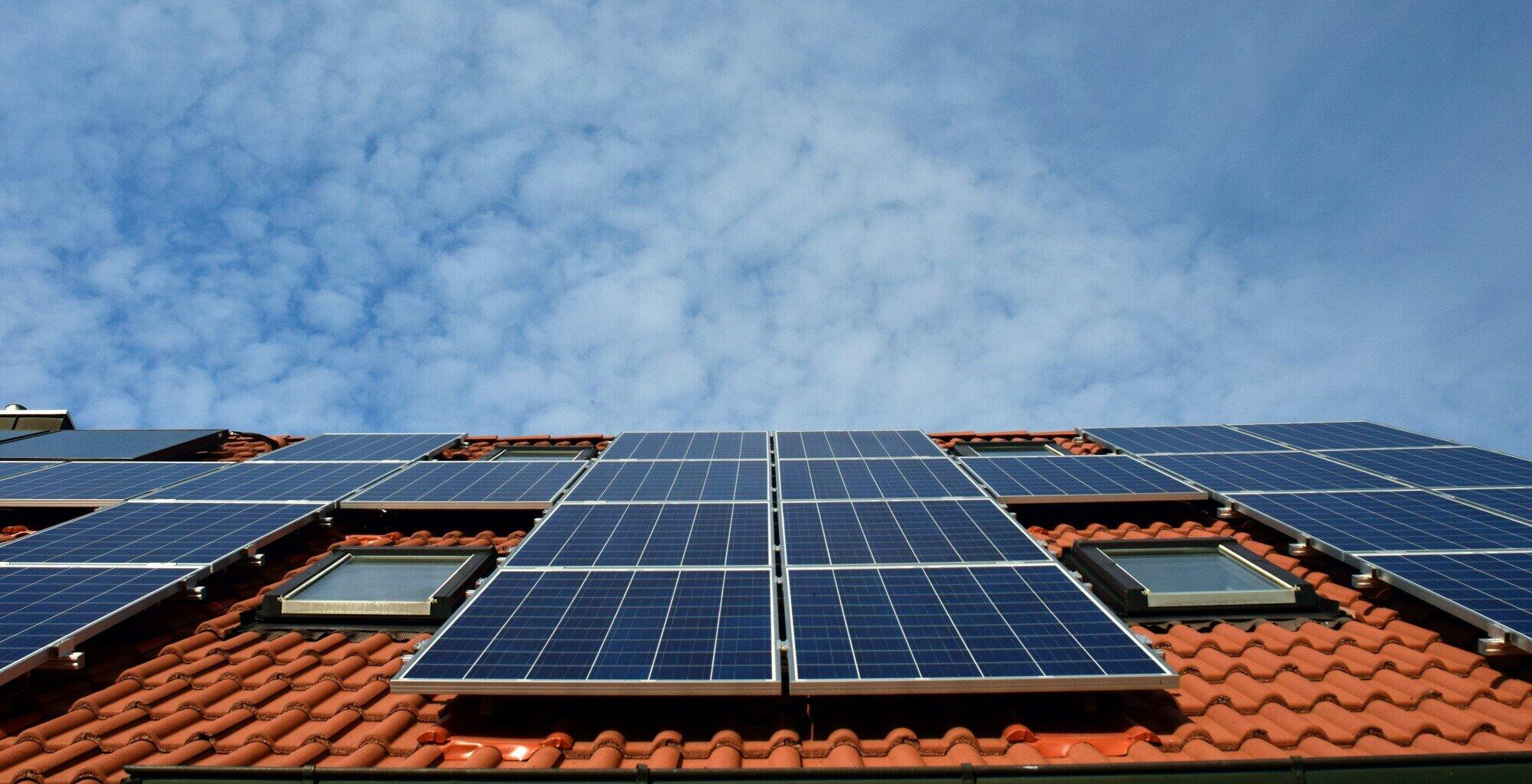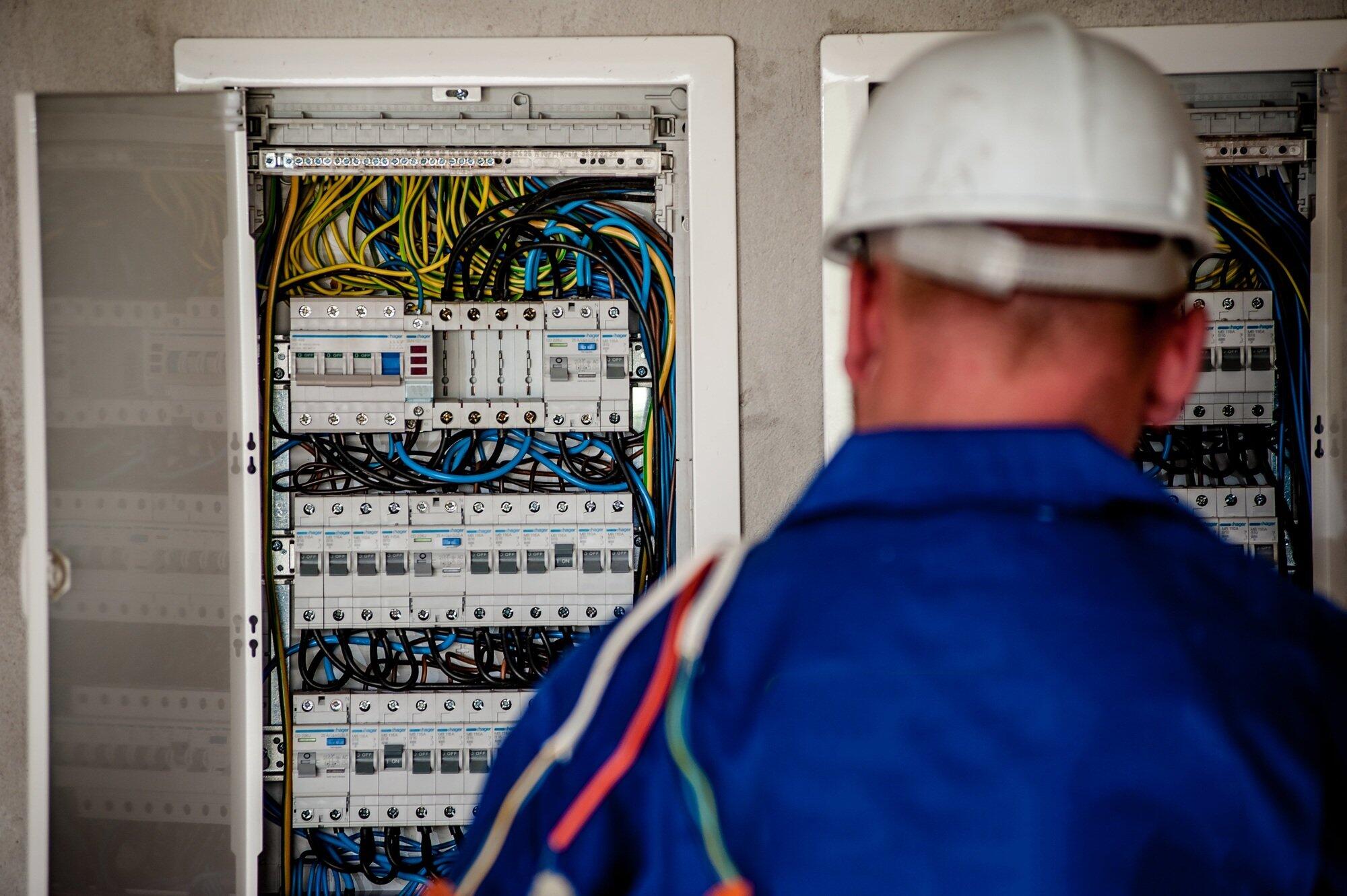8 Reasons Why Brand Assessment is Crucial for Business Success
Posted on April 28, 2024 by Logo Design Tips and Tricks

Brand assessment? It’s like giving your business a health check to ensure it’s fit and ready to win the race in today’s market! It’s all about understanding how shiny your brand looks in the eyes of your customers and finding ways to polish it even more. Imagine having a secret map that shows you exactly where to find the treasure of business success.
Well, brand assessment is kind of that map. It tells you what’s working, what’s not, and how to steer your brand towards winning hearts and minds. Now, why should you do it? Here are 8 rock-solid reasons why checking in on your brand’s health could be the best move you make.
1. Clarifies Brand Perception
To understand your brand is like knowing a good friend. You need to see how others see it. This helps you know if they get what you’re all about. When you know this, you can share your brand’s story better. Think of it like choosing a new profile picture.
You pick one that shows you best. For a brand, you find out what makes you special and make sure people see that. This means checking if people understand and like your brand. When they do, it’s easier to make your brand even better.
2. Identifies Brand Strengths and Weaknesses
It’s all about your brand’s look – its visual identity. This includes your logo, colors, and how your ads look. It’s important because it’s the first thing people see. If it looks good, people will like it more. Think of your brand’s visual identity as your style.
You want it to stand out and make people remember you. But it’s also important to make sure it’s consistent and reflects your brand’s values. A brand assessment can help identify what works and strengthen your brand’s image.
3. Ensures Alignment With Business Goals
Brand assessment is like making sure everything about your brand is doing what you want it to do. Think of it as making sure all parts of a puzzle fit right, so the picture looks good. This step makes sure your brand’s look and message are helping you get to where you want to be.
When you check how your brand is doing, it’s like making a plan to win a game. You see what moves are working and what needs to change. It’s about making sure your brand is on the right path and doing the best it can.
4. Informs Marketing Strategies
Marketing strategies are like plans to help your brand win. You look at what your brand does best and you use it to make people like your brand more. It’s like when you play a game and you have good moves to win. You want more people to know how cool your brand is.
This part of checking your brand helps you decide how to tell people about your brand. You might pick to show your brand on TV, on the internet, or even on big signs. It’s all about finding fun ways to make people remember you.
5. Facilitates Strategic Planning
Doing a brand check-up helps with making big plans. It’s like planning a cool trip. First, you have to know where you are. With everything you learn from checking your brand, you can make smart plans. You’ll know what to do more of and what to stop doing. It makes sure you’re going the right way.
When you do strategic planning, it’s like using a map for your trip. You get to pick the best path to take. Doing this for your brand means you can grow it, making it better and more liked by people. It’s all about playing the long game and winning big.
6. Drives Innovation and Growth
Driving innovation and growth is like finding out what toys kids like best. When you see who likes your brand, you can make cool new things just for them. It’s about knowing what your friends (the target audience) think is fun. When you know, you can make stuff they’ll love.
This means making new things or making what you have even better. It’s all about making your brand something everyone wants to talk about. Think about having the best birthday party in town. If you know what games, snacks, and music your friends like, they’ll have a great time.
7. Improves Customer Loyalty and Retention
Improving customer perceptions means making sure people keep liking and choosing your brand. It’s like making friends who want to come back to your house to play because they have so much fun. You want customers to think of your brand as their favorite. This happens when they like what you do and how you treat them.
It’s important to listen to what people say about your brand. Then, try to make things even better based on what they say. It’s like giving your friend the biggest slice of cake at your party. When customers think your brand is the best, they’ll keep choosing it over others.
8. Prepares for Rebranding
Rebranding is like getting a new look. It makes your brand fresh and new. When you check your brand a lot, you know when it’s time to change. It’s like when your favorite shirt gets old. You want something new that looks cool. This helps your brand stay fun and interesting for everyone. You need to think about what new things you want your brand to have. It’s like planning a big party.
You decide on new colors, a new logo, and what your brand will say. Then, you invite everyone to see your brand’s new look. It’s like getting a new start and making your brand even better. It helps identify strengths, and weaknesses in all aspects of your brand. This can lead to targeted efforts to enhance your brand’s image and attract new customers.
Explore All About Brand Assessment
Brand assessment is like giving it a check-up to see how it’s doing. It helps you make sure your brand looks good and is doing what you want. When you know what people like and don’t like, you can make your brand better. This helps more people like your brand and choose it. It’s a smart way to make sure your brand is the best it can be.
Did you find this article helpful? Check out the rest of our blog for more!
The Importance of Choosing the Right Battery for Your Solar Hybrid Inverter System
Posted on April 28, 2024 by Logo Design Tips and Tricks

For solar hybrid inverters to work as efficiently and reliably as possible, they need the right battery. Solar hybrid inverters are at the heart of solar energy systems. They combine solar power with battery storage.
Having the right battery keeps you powered during power outages, lowers your electricity bills, and makes your inverter last longer. Batteries do differ, though.
Knowing the specifics can make the system run better. This post will talk about why the batteries you choose for your solar hybrid inverter are important. Read on!
Understanding Battery Types
Batteries that are lead-acid, lithium-ion, or saltwater are the three main types used in solar hybrid inverter systems. The first kind of battery was lead-acid. They are cheaper but need more care and don’t last as long.
It costs more to get lithium-ion batteries, but they work better, last longer, and don’t need much maintenance. Because they can be recycled, saltwater batteries are good for the environment. However, they’re not very common yet because they’re new and cost more.
Compatibility
Ensuring the battery works well with the solar hybrid inverter is key to getting the best performance and making the system last longer. If the battery isn’t a good match, it can make the system less effective and shorten its life.
It’s important to check that the battery’s power and size fit what the inverter needs. When everything matches up, the system runs smoother, has fewer problems, and could even save you money on upkeep and replacements.
Capacity
In a solar hybrid system, the battery’s size decides how long it can keep your home powered when there’s no electricity. Think of capacity like a battery’s energy tank, measured in kilowatt-hours (kWh), which tells you how much power it can store.
Choosing a big enough battery means your lights stay on even when the sun isn’t shining. It’s important to pick a battery that matches how much energy you use to make sure your system works well and doesn’t cost too much.
Cycle Life
Cycle life means how many times a battery can be fully charged and used up before it doesn’t work as well as it did when new, usually until it hits 80% of its original power. It tells us how long a battery will last and how good of a deal it is.
Batteries that last longer through more charge cycles are better because you won’t have to replace them as often. So, when picking a battery for solar hybrid systems, it’s important to choose one that will last a long time to keep things running smoothly and sustainably.
Depth of Discharge (DoD)
The Depth of Discharge (DoD) shows how much of a battery you can use before it starts to wear out. Think of it like a battery’s “useable space” shown as a percent.
Choosing a battery with a bigger “useable space” makes your solar charge controller inverter system work better and last longer. More “useable space” means you can use more energy without needing to charge it as often, making the system more efficient over time.
Charge Rates
Charge rates tell us how fast a battery can be recharged. It’s important to make sure the battery’s charge rate fits well with the solar hybrid inverter’s power to use energy efficiently.
A battery that charges quickly can help reduce waiting times when energy use is high. But, charging a battery too fast might need extra systems to keep the battery in good shape over time.
Energy Storage Capacity
Energy storage capacity is basically how much energy a battery can hold and give out. It’s super important because it makes sure your solar inverter system can power your home or business just right.
Think of it like a bigger battery that can keep things running smoothly even when there’s no sun or at night. So, when you’re picking out a battery, make sure to think about how much energy you’ll need to keep everything running just the way you like it.
Safety and Reliability
When choosing batteries for hybrid solar inverter systems, it’s crucial to pick ones that are both safe and reliable. Good quality batteries have safety features to stop them from getting too hot, short-circuiting, or overcharging, making them safe to use.
They also perform well consistently, meaning they’re less likely to suddenly stop working. By choosing a battery known for being safe and dependable, you’ll have fewer worries about upkeep and can trust your system’s reliability.
Cost Considerations
When picking batteries for solar hybrid systems, think about the costs. It’s not just about what you pay at first but also how much you save later.
Paying more upfront might mean lower bills and less spending on replacements down the line. Also, consider costs like upkeep and the chance of it not working for a bit.
Installation and Maintenance
To keep your solar hybrid inverter system working well and lasting longer, it’s important to properly install and take care of the batteries. A pro can make sure your battery works perfectly with your inverter and the type of solar panels, making everything run more smoothly.
Regular check-ups, like cleaning parts and keeping an eye on the battery’s condition, help avoid problems. Doing these things helps your system last longer, gives you steady power, and gets you more bang for your buck.
Environmental Impact
The impact that batteries for solar hybrid inverters have on our environment is really important to think about. There are greener choices out there, like lithium-ion and saltwater batteries.
They’re better for the planet because they can be recycled and they don’t have as many harmful materials. By picking these eco-friendly batteries, we do our part in cutting down the harmful gases that come from usual energy sources. For those interested in understanding the role of solar batteries more deeply, it’s crucial to explore how they integrate with solar hybrid inverters to create a resilient and efficient energy system.
Elevating Your Energy Efficiency with the Right Solar Hybrid Inverter Battery
The right battery for your solar hybrid inverter affects efficiency, reliability, and cost. Solar hybrid inverter system performance depends on compatibility, capacity, cycle life, DoD, charge rate, and energy storage capacity.
Cost, safety, and environmental impact are also factors. A good battery can improve your solar hybrid inverter’s performance and lifespan.
The success of your solar hybrid inverter system depends on choosing a battery that meets your energy needs and goals. Prioritizing these factors ensures a long-term, efficient energy solution.
Did you like this guide? Great! Please browse our website for more!
The Importance of Upgrading to an Outdoor Electrical Panel: Protecting Your Home and Family
Posted on April 26, 2024 by Logo Design Tips and Tricks

When it comes to ensuring the safety and well-being of your family, one area that should not be overlooked is your home’s electrical system. As technology advances and modern homes become more reliant on electricity. It is essential to keep up with the changes and make the necessary upgrades.
One such upgrade that can greatly benefit your family’s protection is upgrading to an outdoor electrical panel. This may seem like a daunting task, but the benefits far outweigh the effort and cost involved. Here are some reasons why upgrading to an outdoor electrical panel is crucial for your family’s safety.
Increased Capacity
When we talk about increased capacity in an outdoor electrical panel, it means your house can use more electronics without any trouble. Your old panel might not handle new gadgets well. But the upgraded panel does this easily. This is great for families who use a lot of electrical devices.
A bigger panel also means you won’t have to worry about running out of space if you want to add more power sources in the future. With more capacity, your home can handle all the electrical needs of your family and adapt to any future additions or upgrades.
This upgrade can be a big help during hot summers or cold winters. When everyone is using air conditioners or heaters, a stronger panel makes sure your home stays comfortable. Upgrading is a smart move to keep your home ready for anything, anytime.
Improved Accessibility
Having an electric panelboard outside makes it easier for you and the electricians to check on it without having to go through your house. This means if there’s a problem or you want to add something new, it can be done faster and without making a mess inside. Plus, if there’s an emergency, it’s quicker to turn off the power from outside, keeping everyone safe.
When your electric panelboard is easy to get to, it’s less of a hassle to keep up with home improvements or repairs. You won’t have to move furniture or wait for a long time to get things fixed. This makes managing your home’s electricity easier and safer for everyone.
With this upgrade, you can also have the option to install a solar panel system, which can further increase the safety and efficiency of your home’s electricity. Redmond’s solar panel installation services can help you make this transition as smooth and hassle-free as possible, ensuring your home is equipped with the latest technology.
Power Outage Prevention
Preventing power outages means making sure our homes are safe and our lights stay on. Upgrading to an outdoor electrical panel is a big step in stopping blackouts. When you have a newer electrical panel, it can handle fluctuations in the power grid better and protect your home from damage caused by surges. This upgrade lets us add more things to our homes without worrying about the lights going out.
With an upgraded panel, we’re better protected from unexpected power cuts. It’s designed to handle a lot of electricity safely, reducing the chances of problems. Keeping our homes powered up and safe is easier with this upgrade.
Ease of Maintenance
Upgrading to an outdoor electrical panel makes taking care of your home’s power system much simpler. With the panel outside, checking and fixing any issues becomes faster and causes less trouble in your daily life. This means your home stays safer and more comfy without big hassles.
Keeping the panel in good shape is important for your family’s safety and to make sure everything works right. An outdoor panel is easier to reach, so pros can work on it without disrupting your home. This upgrade will help your home’s electrical system stay in top condition with less effort from you.
Future-Proofing Your Home
Future-proofing your home means making it ready for whatever comes next. By upgrading to an outdoor electrical panel, you’re preparing your house to handle new technology and electrical demands. This is a smart move because it means you won’t be left behind as more gadgets become part of our daily lives.
Upgrading isn’t just about handling more power; it’s about making your home safer and more efficient for the long haul. With an outdoor panel, your home is set up to avoid electrical problems that could arise from outdated systems. It’s an investment in your home’s future, ensuring it stays up-to-date and safe for your family.
Think about all the new devices and technologies that will become common in the next few years. With a modern electrical panel, your home can easily adapt to these changes without the hassle of frequent, costly upgrades. This way, your home stays comfortable, functional, and ready for the future, giving you peace of mind.
Enhanced Safety
Upgrading your electrical panel to a newer model makes your home much safer. When you replace your old electrical panel, it reduces the risk of electrical fires and keeps your gadgets running smoothly. This means your family and home are safer, especially when you add more electrical devices.
The newer outdoor electrical panels have additional safety features, such as circuit breakers and ground fault interrupters, to protect against potential hazards. These safety features can detect and prevent electrical overloads, short circuits, and ground faults that could lead to serious accidents.
Family safety should always be a top priority, and upgrading to an outdoor electrical panel is an important step in achieving that. It provides peace of mind knowing that your home’s electrical system is up-to-date and equipped with the latest safety features.
Concluding Thoughts on Upgrading to an Outdoor Electrical Panel
Upgrading to an outdoor electrical panel offers more than just safety. It’s a smart choice for any family looking to future-proof their home. With it, you can add new gadgets without worry.
Panel upgrade panel means your home can handle whatever tech comes next. It keeps your lights on and your device running smoothly. With this upgrade, your house will be ready for today and tomorrow.
Choosing an outdoor electrical panel is choosing peace of mind. It’s about making your home safe and ready for the future. It’s a simple step that brings big benefits.
If you find this article helpful, check out our blog for more informative content.
Understanding the Benefits of Hybrid Inverter Solar Systems
Posted on April 26, 2024 by Logo Design Tips and Tricks

Imagine a superhero for your home that can pull energy from the sun, save it, and then use it to power up your world anytime-day or night. Well, that’s what a hybrid inverter does in the solar power world!
It’s like having a power wizard at your service, making sure you’re using solar energy in the smartest way possible. In this blog, we’ll dive into the magic of hybrid inverter solar systems and how they’re changing the game in renewable energy. Stick around to see how this technology can light up your life in ways you never imagined!
The Power of Solar Energy – Harnessing Sunlight for Electricity
Solar power, which turns sunlight into electricity, is one of the most popular and useful types of renewable energy. Photovoltaic cells, which are another name for solar panels, turn light from the sun into electricity.
Direct current (DC) electricity is sent to a solar inverter, which changes it into alternating current (AC) electricity. Most homes and businesses use AC electricity. The main parts of a traditional solar power system are an inverter, a solar charge controller (for battery systems), and a solar PV array.
What Are Hybrid Inverter Solar Systems?
A hybrid inverter solar system is an advanced type of regular solar power system that is made to work better and do more. The most important new thing about hybrid systems is that they include energy storage, which is usually done with batteries. Batteries can store extra power made during sunny days so that it can be used at night or during times of high demand.
Hybrid solar inverter systems can work without being connected to the power grid. This means that you can use your solar energy whenever you want, without having to depend on the utility grid.
It is called a “hybrid” because it has both a standard solar inverter and a battery inverter. To get the most out of solar power, this smart system controls all its inputs and outputs. They usually come with better monitoring tools that let people see how well their solar energy is producing and storing energy.
Benefits of Hybrid Inverter Systems
Hybrid inverter systems are better for solar energy because they store extra power for later use. This way, not a single bit of sunlight is lost. They work with or without the power grid, so you can always have power, even if the grid goes down or you’re in a remote area where you can’t connect.
You can save a lot of money on your electricity bills with these systems. They can also help you use less expensive, nonrenewable utility power by letting you use more solar energy. Real-time monitoring lets people know how much power they are using, which helps them find ways to use more.
Cost-Saving Potential
One of the most obvious and useful benefits of a hybrid inverter system is that it can save you a lot of money. People can become less reliant on the power grid by storing extra energy when it’s easiest to get (during the day when the sun is shining). This can be especially helpful if you live in an area with different rates for different times of the day.
A key feature for saving costs includes the solar hybrid inverter’s capability to feed surplus power back to the grid. Through net metering programs available in many areas, you can receive credits for the extra energy your system contributes back, which can lower your electricity expenses or generate income over time.
Enhanced Energy Independence
Hybrid solar inverter systems offer a degree of energy autonomy that is not possible with traditional solar power alone. By having a backup energy source available, homeowners are protected from blackouts or power outages.
This can be essential in areas prone to extreme weather events or in instances where the grid is unreliable. Blue Raven Solar in Minnesota has invested in hybrid solar inverter systems for homes that desire to stay connected without the hassle of occasional outages.
Reduction in Your Environmental Footprint
Giving up the chance to save money by using less energy is the right thing to do for the environment. If you need backup power, you can use a hybrid solar inverter system instead of the grid, which gets its power from fossil fuels that don’t break down. Your life will get better as you leave less of a carbon footprint.
Tips for Choosing the Right Hybrid Inverter System
A lot of things need to be taken into account when picking the right hybrid inverter system. These include how much energy you use, the size of your home, and even the rules and incentives in your area. Don’t forget these:
Consider Your Energy Consumption and Needs
Start by evaluating your typical energy consumption. Look at your past electricity bills to understand your usage patterns, and consider the seasonal variations. This data will help you determine the optimal size of your solar PV array and battery storage capacity.
Understand Local Regulations and Incentives
Talk to your power company and the right government offices to find out what laws and rules might affect how you set up your hybrid system. See if there are any deals or rebates that could help you pay for the installation.
Quality Matters
Solar panels, batteries, and inverters are all high-quality parts that you should buy for your hybrid system. A system is only as strong as its weakest link, and the performance and dependability of your system will depend on how well the inverter works.
Seek Professional Help
An extensive task lies in planning and putting together a hybrid solar system. Choose solar energy companies with a good reputation that can examine your site, provide custom solutions, and guarantee a job well done.
Harnessing Tomorrow’s Energy Today – The Bright Future of Hybrid Inverter Systems
In wrapping up, the “hybrid inverter” stands at the core of a revolution in sustainable living, balancing energy production, storage, and consumption. This transformative technology not only propels us towards a future of reduced carbon footprints and greater energy independence but also embodies the potential for significant cost savings and enhanced reliability.
By adopting hybrid inverter systems, we can take part in shaping a more sustainable, resilient, and energy-efficient world. It’s a powerful step forward in harnessing the sun’s energy for a brighter tomorrow.
Want to learn more? Don’t forget to explore our other articles before you leave!








